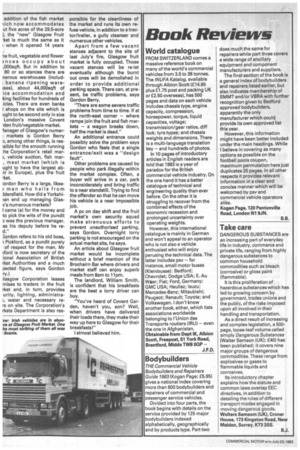Take care
Page 26

If you've noticed an error in this article please click here to report it so we can fix it.
DANGEROUS SUBSTANCES are an increasing part of everyday life in industry, commerce and private life, ranging from highly dangerous substances to common household commodities such as bleach (corrosive) or gloss paint (flammable).
It is this proliferation of hazardous substances which has led to growing concern by government, trades unions and the public, of the risks imposed upon all involved in their handling and transportation.
As a direct result of increasing and complex legislation, a 500page, loose-leaf volume called simply Dangerous Substances (Walter Samson (UK); £40) has been published; it covers nine major groups of dangerous commodities. These range from explosives or gases to flammable liquids and corrosives.
Its introductory chapter explains how the statute and common laws overlap EEC directives, in addition to detailing the roles of different transport modes engaged in moving dangerous goods. Wolters Samsom (UK), Croner House, 173 Kingston Road, New Malden, Surrey, KT3 3SS.
B.J.




















































































